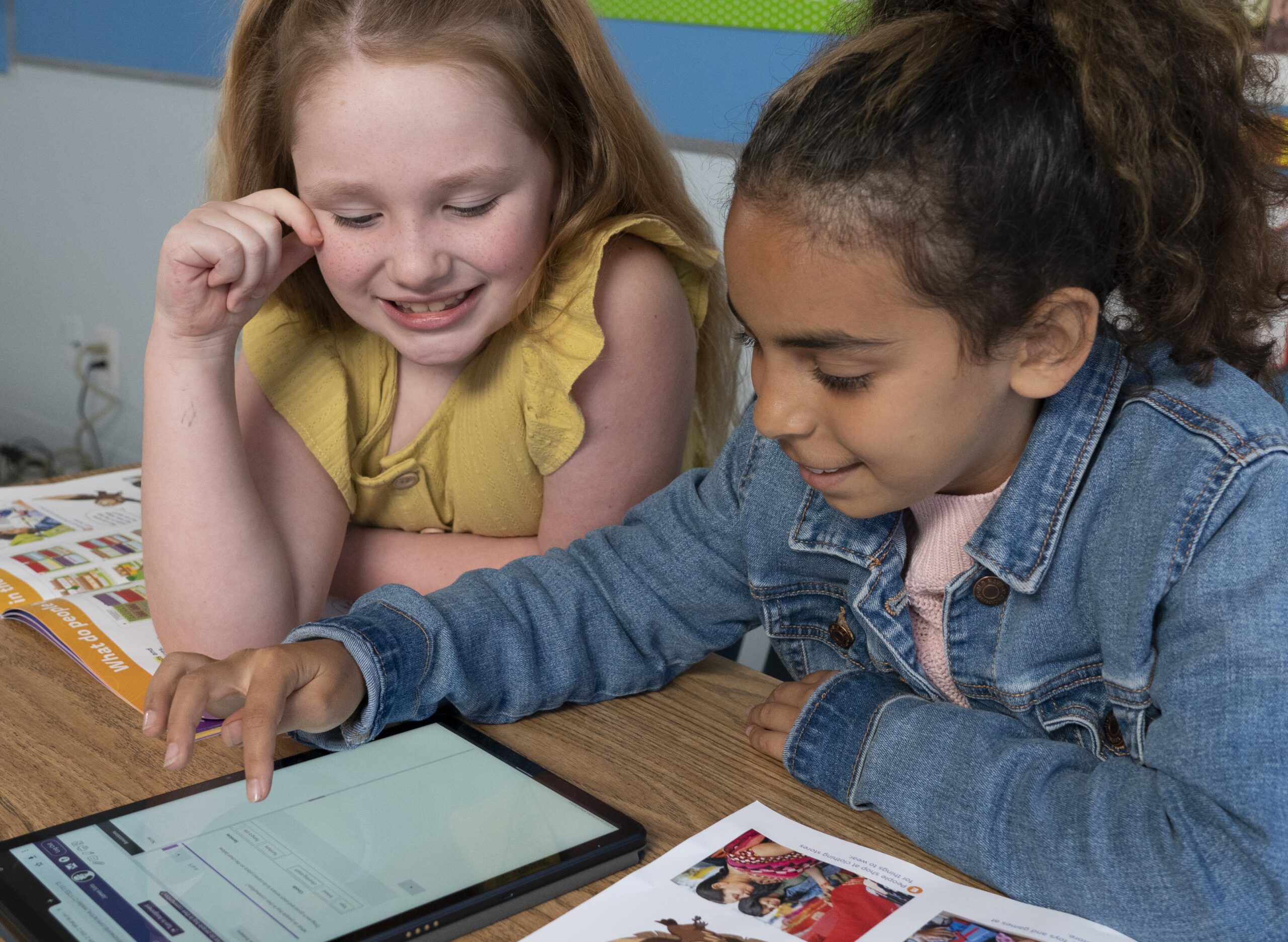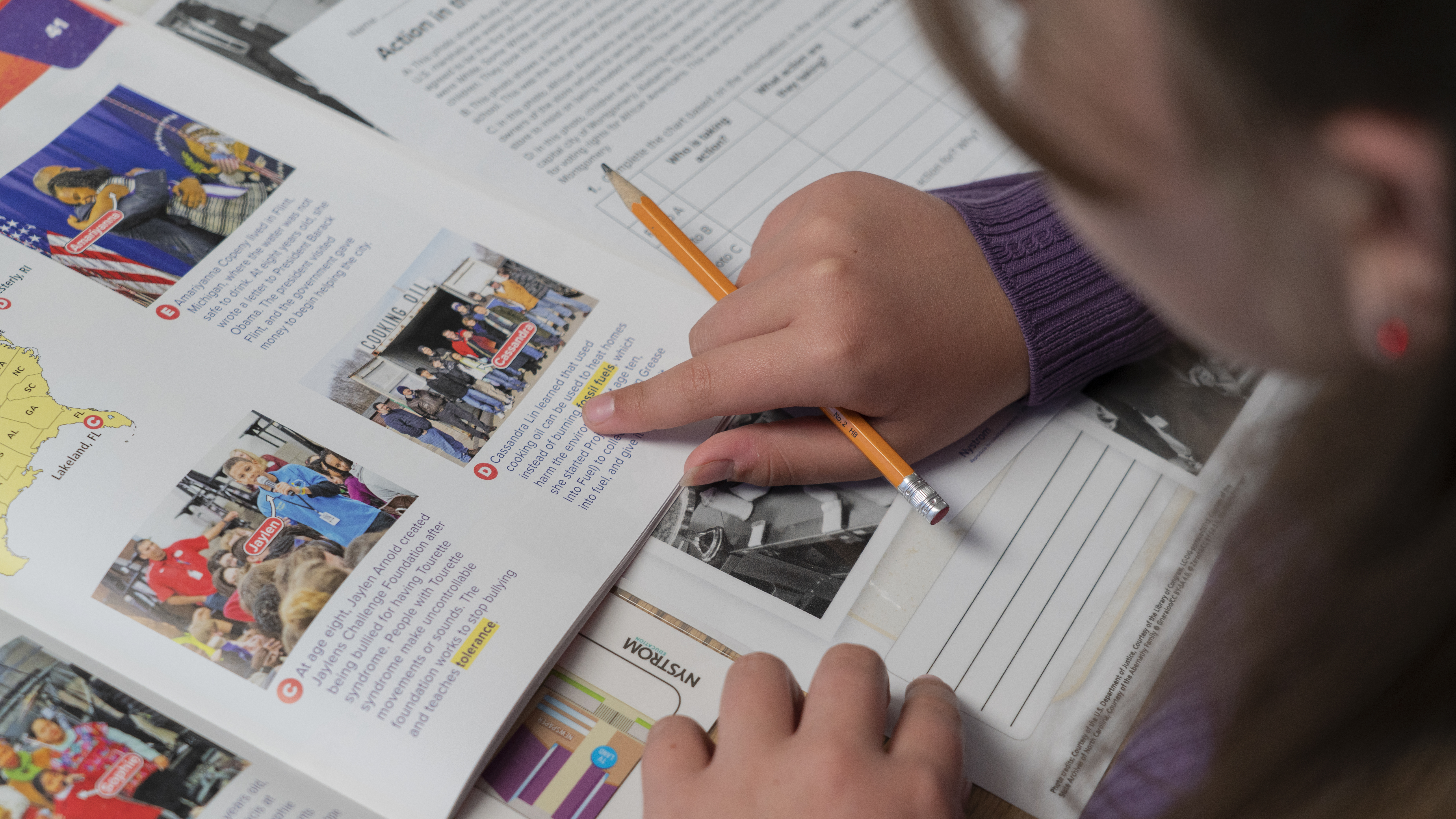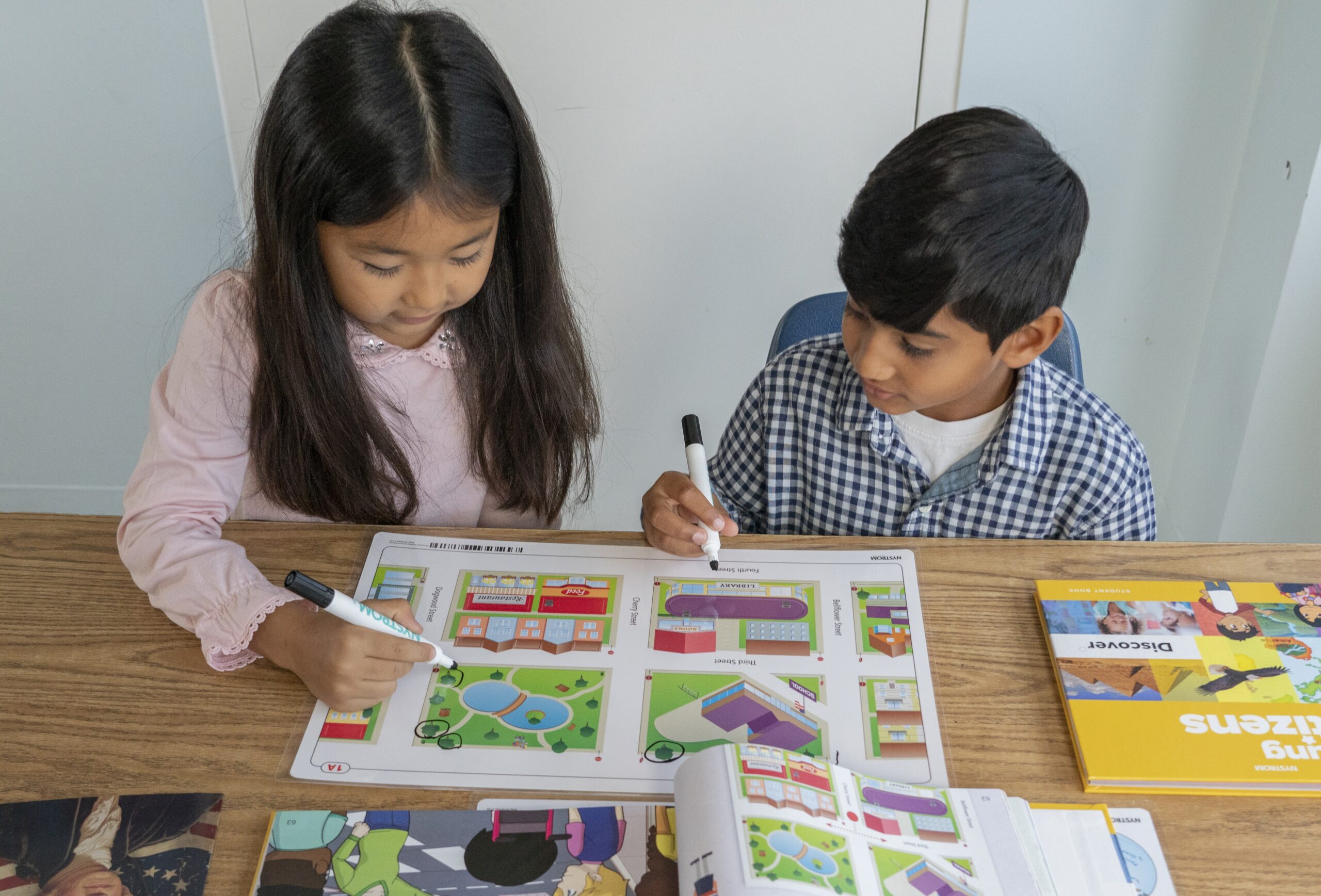
In early education, the development of foundational literacy skills is a major educational priority and focus. While traditional approaches often focus solely on language arts instruction, integrating social studies offers a holistic approach to literacy development in Kindergarten through second-grade. By exposing our youngest learners to the content and skills of social studies, educators can cultivate a rich learning environment that enhances students’ reading, writing, speaking, and listening abilities through authentic learning experiences. In this blog, I will share specific strategies that support the profound connection between social studies and the development of early literacy skills.
What is Literacy?
Literacy refers to the ability to read, write, speak, and understand a language proficiently. It encompasses a range of skills and competencies that enable individuals to effectively communicate, comprehend, and interpret written and spoken information. Literacy extends to include comprehension, critical thinking, and the ability to apply literacy skills in various contexts.
But what could it look like to build a foundation that will make long term literacy achievable for our students in the earliest grades? Literacy development in Kindergarten, first-grade, and second-grade progresses through distinct developmental stages as children build upon foundational skills and acquire more advanced abilities. K-2 teachers are expected to build skills such as phonemic awareness, letter recognition, decoding, and reading fluency in students, while also expanding their vocabulary and comprehension abilities. Additionally, teachers must expose students to various genres of text and developmentally appropriate, complex writing tasks. This is an unbelievably heavy lift, but research suggests that social studies can serve as an ally.

Social Studies + Reading Strategies
Reading comprehension is a crucial aspect of literacy development. Social studies provides a wealth of opportunities for young learners to engage with text while gaining valuable content knowledge.
Read Alouds with Social Studies Texts
Instead of selecting random texts, select age-appropriate books that are content-rich in historical events, cultures, and community roles. Pause frequently to ask comprehension questions and encourage discussions about the text. This strategy will help students build background knowledge which is a critical component for developing literacy skills.
Text Features Exploration
Utilize maps, timelines, and diagrams commonly found in social studies materials to teach students how to interpret visual information. This enhances their ability to extract meaning from various text formats, a crucial skill for literacy development.
Content-Based Vocabulary Instruction
Social studies is full of rich vocabulary and concepts that support students with developing context, another vital skill for literacy development. In addition, social studies concepts and vocabulary are highly transferrable to other topics. Introduce and reinforce vocabulary related to social studies themes through context-rich activities. Encourage students to use new words in their writing and conversations.
Social Studies + Writing Strategies
Writing is a fundamental skill that can be strengthened through the exploration of social studies topics, fostering creativity and critical thinking.
Journaling
Provide prompts related to historical figures, events, or cultural traditions to inspire students’ writing. Encourage descriptive language and personal reflections. This will support students with the literacy skill of recognizing and developing context.
Historical Narratives
Guide students in crafting fictional narratives set in historical contexts. This encourages research, imagination, and the development of storytelling skills and descriptive writing.
Informational Writing
Scaffold the process of writing informational texts about social studies topics. Teach students how to organize information logically and use evidence to support their ideas.

Social Studies + Speaking and Listening Strategies
Effective communication skills are essential for academic and social success. Social studies offers numerous opportunities for students to engage in meaningful conversations and collaborative learning experiences.
Classroom Discussions
Facilitate discussions about social studies topics, encouraging students to ask questions, express opinions, and respond to their peers’ ideas. This builds confidence in speaking and listening while promoting critical thinking. Having students discuss a topic first will often result in more in-depth, thoughtful writing responses from students.
Role-Playing Activities
Assign community roles and engage students in dramatic play or scripted dialogues. This enhances oral communication skills and point of view / perspective-taking. Ensure that the roles are appropriate for students.
Presentation Skills
Provide opportunities for students to present findings or share personal connections to social studies topics with their classmates. This could be as simple as having students come up to the board to identify a specific location on a map, like the neighborhood grocery store, and describing a personal experience they’ve had at the grocery store, “my mom allowed me to taste a grape to see if they were sweet.” Offer constructive feedback to help them improve their public speaking abilities.
Social Studies Content + Literacy Skills
Contextualized Learning
Social studies content provides meaningful contexts for literacy instruction, making learning more relevant and engaging for students. When students connect reading, writing, speaking, and listening activities to real-world topics, they are more motivated to actively participate and actually apply their literacy skills.
Cross-Curricular Connections
Integrating social studies into literacy instruction promotes interdisciplinary learning. Students not only develop literacy skills but also gain knowledge in history, geography, economics, and other social sciences that can support them with building background knowledge. This holistic approach fosters a deeper understanding of the world and encourages critical thinking skills.
Cultural Awareness and Empathy
Exploring diverse cultures and perspectives through social studies curriculum promotes cultural awareness and empathy among students. By reading about and discussing different historical events, traditions, and societal issues, students develop a broader worldview and learn to appreciate the experiences of others. This enhances their ability to understand and empathize with diverse characters in literature and effectively communicate with people from various backgrounds.
Teach Social Studies!
Integrating social studies into literacy instruction offers many benefits for students in kindergarten through second grade. “The Early Childhood Longitudinal Study shows that social studies is the only subject with a clear, positive, and statistically significant effect on reading improvement. In contrast, extra time spent on English Language Arts (ELA) instruction has no significant relationship with reading improvement.” (How Social Studies Improves Elementary Literacy, 2021 National Council for the Social Studies). Social studies provides authentic opportunities to practice and apply literacy skills. By incorporating reading, writing, speaking, and listening activities centered around rich social studies content, educators can create a dynamic learning environment that promotes holistic literacy development.
Seeking an elementary social studies curriculum that meets literacy standards?
Try a free trial of Nystrom Young Citizens
Regina Wallace resides in Atlanta, Georgia where she most recently served as a district K-12 Social Studies Coordinator. In this role Ms. Wallace developed the district’s Civic Engagement, Financial Literacy, and Diversity Awareness programs while increasing student outcomes on state assessments. Ms. Wallace was recognized by the Georgia Council of Economic Education and state Superintendent Richard Woods with an award for Innovation in Financial Education She was also recognized by Michelle Obama’s When We All Vote organization for her work with student civic engagement during the 2020 elections. These are issues that she is most passionate about. Engagement begets engagement is the educational philosophy in which she lives by. She now serves as a District Partnerships & Instruction Coordinator for Social Studies School Service.
